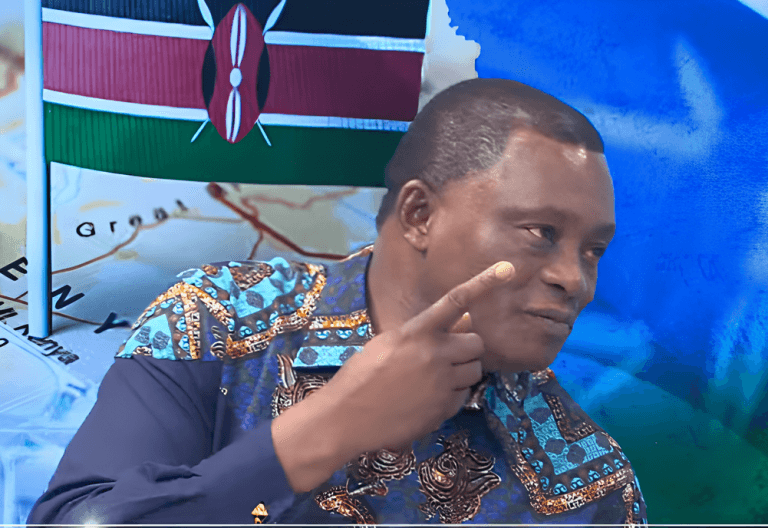We're loading the full news article for you. This includes the article content, images, author information, and related articles.
Former Attorney General Justin Muturi's remarks resurface President William Ruto's historical opposition to the 2010 Constitution, strategically highlighting past ideological battles as their present political alliance crumbles.

NAIROBI, KENYA – Former Attorney General and Public Service Cabinet Secretary, Justin Muturi, on Monday, November 10, 2025, revived the debate over President William Ruto’s vehement opposition to the 2010 Constitution, reminding the nation of the foundational disagreements that shaped the country's supreme law. Muturi's statement comes amid a deepening public rift between the two former allies, turning a historical footnote into a potent political weapon in Kenya's evolving power dynamics.
The remarks force a look back 15 years to the heated campaigns preceding the August 4, 2010 constitutional referendum. [3] At the time, President Ruto, then the Minister for Higher Education, was the most prominent figure in the ‘No’ campaign, which stood against the proposed charter supported by the grand coalition government of then-President Mwai Kibaki and Prime Minister Raila Odinga. [3, 20] Despite a vigorous campaign, the ‘No’ camp was defeated, with 68.6% of Kenyan voters endorsing the new constitution, which was officially promulgated on August 27, 2010. [3, 9]
President Ruto’s opposition to the draft constitution was multifaceted, centering on several key clauses he argued were detrimental to the nation's future. His primary concerns, articulated in various forums in April 2010, included:
The ‘No’ campaign, which also included former President Daniel arap Moi, insisted that these contentious issues should be amended before the referendum, a position the ‘Yes’ side rejected, arguing that changes could be made after adoption. [2, 3]
Muturi's decision to highlight this history is inseparable from the dramatic collapse of his political relationship with President Ruto. A veteran politician who served as Speaker of the National Assembly from 2013 to 2022, Muturi set aside his own presidential ambitions to join Ruto's Kenya Kwanza coalition ahead of the 2022 elections. [7, 13] Following the victory, he was appointed Attorney General and later Cabinet Secretary for Public Service. [7, 17]
However, the alliance soured dramatically in 2024 and 2025. Muturi became an outspoken critic from within the cabinet, condemning state-sanctioned abductions and extrajudicial killings, particularly during the anti-government protests where his own son was reportedly a victim. [5, 14] This public dissent led to his dismissal from the cabinet in March 2025. [7, 12] Since his ouster, Muturi has expressed profound regret for supporting the President and has aligned himself with opposition figures, ruling out any possibility of reconciliation. [10, 14, 18]
By reminding Kenyans of Ruto’s past constitutional stance, Muturi is strategically questioning the President's commitment to a document he now swears to uphold. This move serves to energize a political base wary of potential constitutional amendments and frames the current administration's challenges within a longer history of ideological debate. It underscores the irony that President Ruto is now the chief custodian of a constitution he once campaigned to defeat.
As Kenya navigates pressing issues of governance, economic hardship, and national unity, Muturi's comments are a stark reminder that the battles over the soul of the 2010 Constitution are far from over. They are merely being repurposed by new political alignments, ensuring that the foundational debates of 15 years ago remain deeply relevant to the nation's present and future.
Keep the conversation in one place—threads here stay linked to the story and in the forums.
Sign in to start a discussion
Start a conversation about this story and keep it linked here.
Other hot threads
E-sports and Gaming Community in Kenya
Active 9 months ago
The Role of Technology in Modern Agriculture (AgriTech)
Active 9 months ago
Popular Recreational Activities Across Counties
Active 9 months ago
Investing in Youth Sports Development Programs
Active 9 months ago
Key figures and persons of interest featured in this article